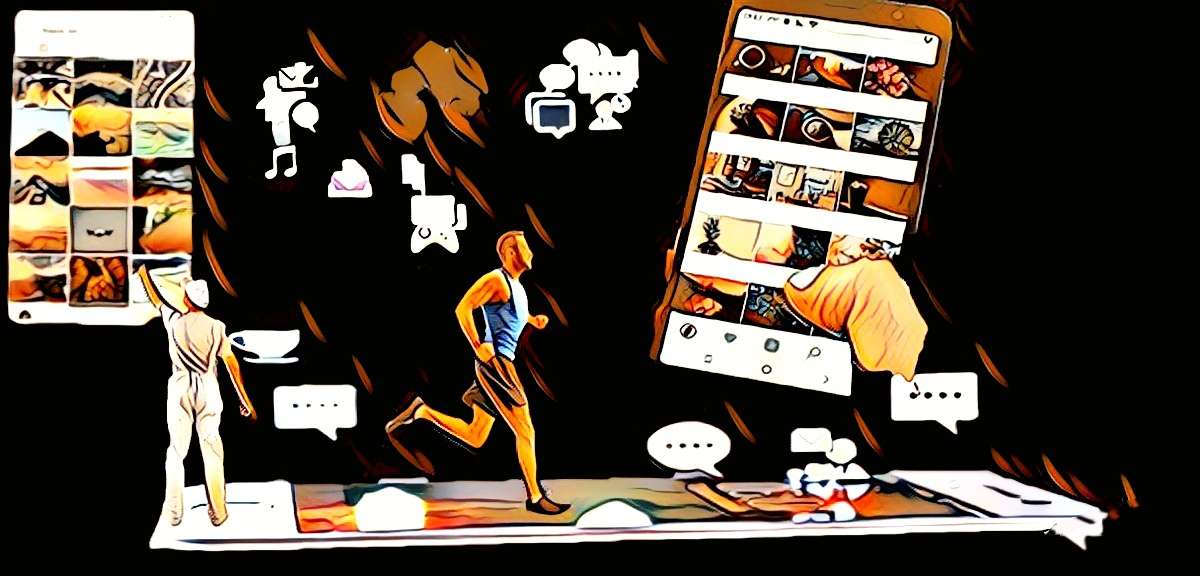
It’s true that the concept of “scrolling” has evolved significantly, from ancient scrolls to the digital scrolling we engage in today. Here’s a breakdown of its origins and the potential impacts of modern scrolling habits:
- Ancient Scrolls:
- The earliest form of “scrolling” involved physical scrolls made of materials like papyrus, parchment, or animal skins. These were used by ancient civilizations such as the Egyptians, Greeks, and Romans to record information.
- These scrolls were rolled up, and to read them, one had to physically unroll them, revealing the text or images within. This act of unrolling is the historical precursor to our modern digital scrolling.
- The “Diary of Merer” is one of the oldest known scrolls, dating back to around 2568 BCE.
- These ancient scrolls played a vital role in preserving knowledge and transmitting information before the invention of the codex (bound book).
- The Transition to the Codex:
- The codex, with its bound pages, gradually replaced scrolls due to its practicality. This format made it easier to navigate and access information.
- However, the concept of sequential information and the act of moving through it remained.
- The Digital Age and Modern Scrolling:
- With the advent of computers and the internet, “scrolling” took on a new meaning. It now refers to the act of moving content up or down a digital display screen.
- The graphical user interface (GUI) and the mouse wheel revolutionized how we interact with digital information.
- The rise of smartphones and tablets further amplified the prevalence of scrolling, with touchscreens enabling intuitive and continuous scrolling.
- The world wide web, with its design of long pages of information, made scrolling a core component of how we consume online content.
- Etymology:
- It is important to note that the word “scroll” has older origins, that relate to the word meaning a roll of paper, or to ornamental patterns that resemble a rolled form. The digital verb form of scroll is a more recent usage.
The Potential Detrimental Effects of Excessive Scrolling
While scrolling has made information readily accessible, excessive engagement can have adverse effects:
- Attention Deficit and Reduced Focus:
- The constant stream of information and stimulation from endless scrolling can shorten attention spans and make it difficult to focus on tasks that require sustained concentration.
- The design of many social media platforms and news feeds is optimized for continuous engagement, often at the expense of deep focus.
- Mental Health Concerns:
- Excessive social media scrolling has been linked to increased feelings of anxiety, depression, and social isolation.
- The constant exposure to curated online personas can lead to social comparison and feelings of inadequacy.
- “Doomscrolling,” the act of endlessly scrolling through negative news, can contribute to heightened stress and anxiety.
- Physical Health Issues:
- Prolonged scrolling can lead to eye strain, headaches, and musculoskeletal problems such as neck pain and carpal tunnel syndrome.
- Sedentary behavior associated with excessive screen time can increase the risk of obesity and other health problems.
- Disrupted sleep patterns, due to late night scrolling.
- Information Overload and Cognitive Fatigue:
- The sheer volume of information available through scrolling can overwhelm the brain, leading to cognitive fatigue and difficulty processing information.
- This can impair decision-making and problem-solving abilities.
- Erosion of Deep Reading and Critical Thinking:
- The tendency to skim and scan information while scrolling can hinder the development of deep reading and critical thinking skills.
- The constant influx of short-form content can make it challenging to engage with longer, more complex texts.
Mitigating the Negative Impacts
It’s crucial to be mindful of our scrolling habits and take steps to mitigate the potential negative impacts:
- Setting time limits for screen time.
- Practicing mindful scrolling and being aware of the content we consume.
- Prioritizing offline activities and engaging in hobbies.
- Taking regular breaks from screens.
- Cultivating deep reading and critical thinking skills.
.






Leave a Reply